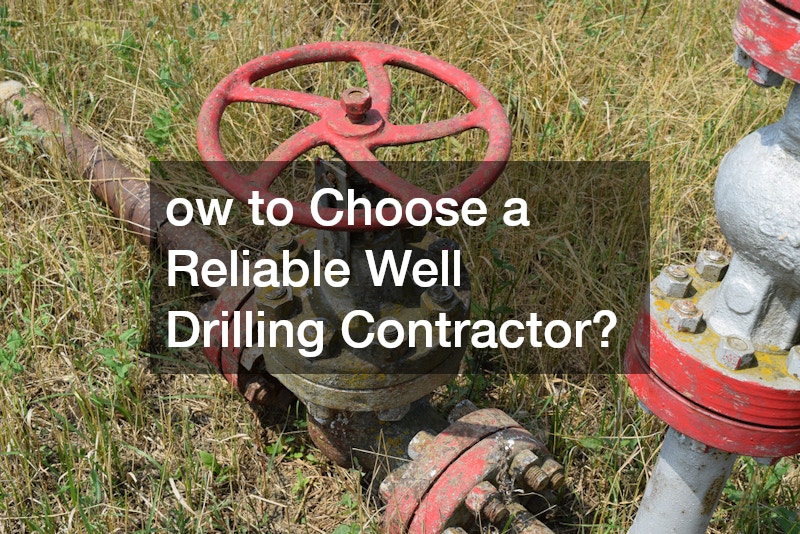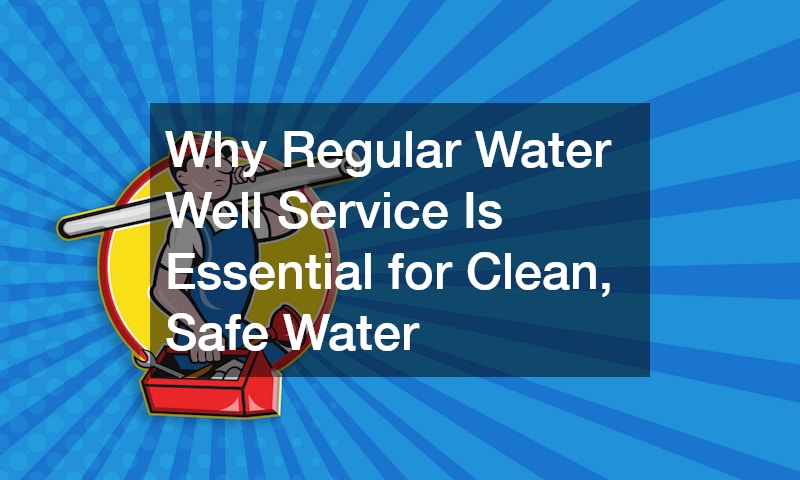A professional well drilling service offers specialized expertise to ensure a reliable water source for homes and businesses. Understanding what to expect from such services is crucial for making informed decisions. This article will explore three key aspects people often inquire about regarding professional well-drilling services.
What is the Cost of Professional Well Drilling?
The cost of professional well drilling can vary significantly based on several factors. Geographical location is a primary consideration, as the area’s terrain and regulations can impact the complexity and expense of the drilling process. Additionally, necessary depth to reach water and materials, like steel casings and specialized drilling equipment, also play a crucial role in determining the overall cost.
Environmental conditions such as rocky soil or proximity to bodies of water can further influence these expenses. Urban areas may face higher costs due to stricter regulations and limited space for equipment. In rural areas, although regulations may be more lenient, deeper wells might be required, offsetting any potential savings.
Pricing estimates from professional well drilling services often include a breakdown of both labor and materials. A detailed estimate should encompass the scope of work, including drilling depth, installation of the casing, and setup of the well cap. Additional factors like equipment transportation, time duration, and labor charges should also be transparently outlined in an estimate.
Moreover, these estimates are typically shaped by the contractor’s experience and the prevailing market rates in the region. It’s recommended to request estimates from multiple contractors to compare and make a well-informed decision. Understanding these estimates can empower stakeholders with the knowledge needed to negotiate and plan their budgeting effectively.
How to Choose a Reliable Well Drilling Contractor?
Finding a reliable well drilling contractor begins with investigating their credentials thoroughly. Licenses and certifications are crucial indicators of a contractor’s competence and adherence to industry standards. An affiliation with recognized industry associations provides additional assurance of professionalism and expertise.
Checking with local regulatory bodies can confirm the validity of a contractor’s license and track record. Customer reviews and ratings on online platforms offer insight into the client experience and the contractor’s reliability. Take the time to ask for references from the contractor to verify their past work and confirm their standing within the community.
Moreover, understanding the contractor’s insurance policy is also critical in protecting oneself from potential liabilities. An insured contractor ensures that any accidents or damages during the work process will not financially burden the client. Adequate research into these credentials can lead to a more informed and secure decision.
Experience and expertise are pivotal when choosing the right well drilling contractor for the job. Contractors with years of industry work have likely encountered various challenges and are well-equipped to handle unexpected issues. Their breadth of experience typically results in efficient and quality execution of well drilling projects.
Reviewing past projects and client testimonials can provide insight into the contractor’s track record. Analyzing the contractor’s scope of services can help determine if their strengths align with project-specific requirements. Specialization in certain types of drilling, like deep well or geothermal, could be particularly pertinent depending on the client’s needs.
What is the Well Drilling Process Like?
The well drilling process begins with an initial site evaluation and planning phase, crucial for determining the feasibility and specifics of the project. Surveys conducted at this stage evaluate the suitability for drilling based on geological data and water table levels. Planning approvals involve consultations with local authorities to ensure compliance with environmental and zoning regulations.
This phase is pivotal as it establishes the groundwork for the entire project, influencing decisions like drilling techniques and equipment needed. Proper planning and site evaluation can minimize potential complications during drilling. Collaboration between the client and contractor is key to aligning the technical requirements and client expectations from the outset.
Once approved, detailed planning continues, integrating the analysis with a tentative timeline and cost estimation. During this stage, clients can address potential concerns and preferences with their contractor. Ensuring meticulous site evaluation and planning ensures that the journey from concept to completion proceeds seamlessly.
Choosing a professional well drilling service involves understanding costs, selecting the right contractor, and familiarizing oneself with the drilling process. These insights can help ensure a successful project that yields a sustainable and clean water supply. Engaging with a reputable contractor provides peace of mind that the well will be constructed and maintained to high standards, protecting both the client’s investment and the environment.




